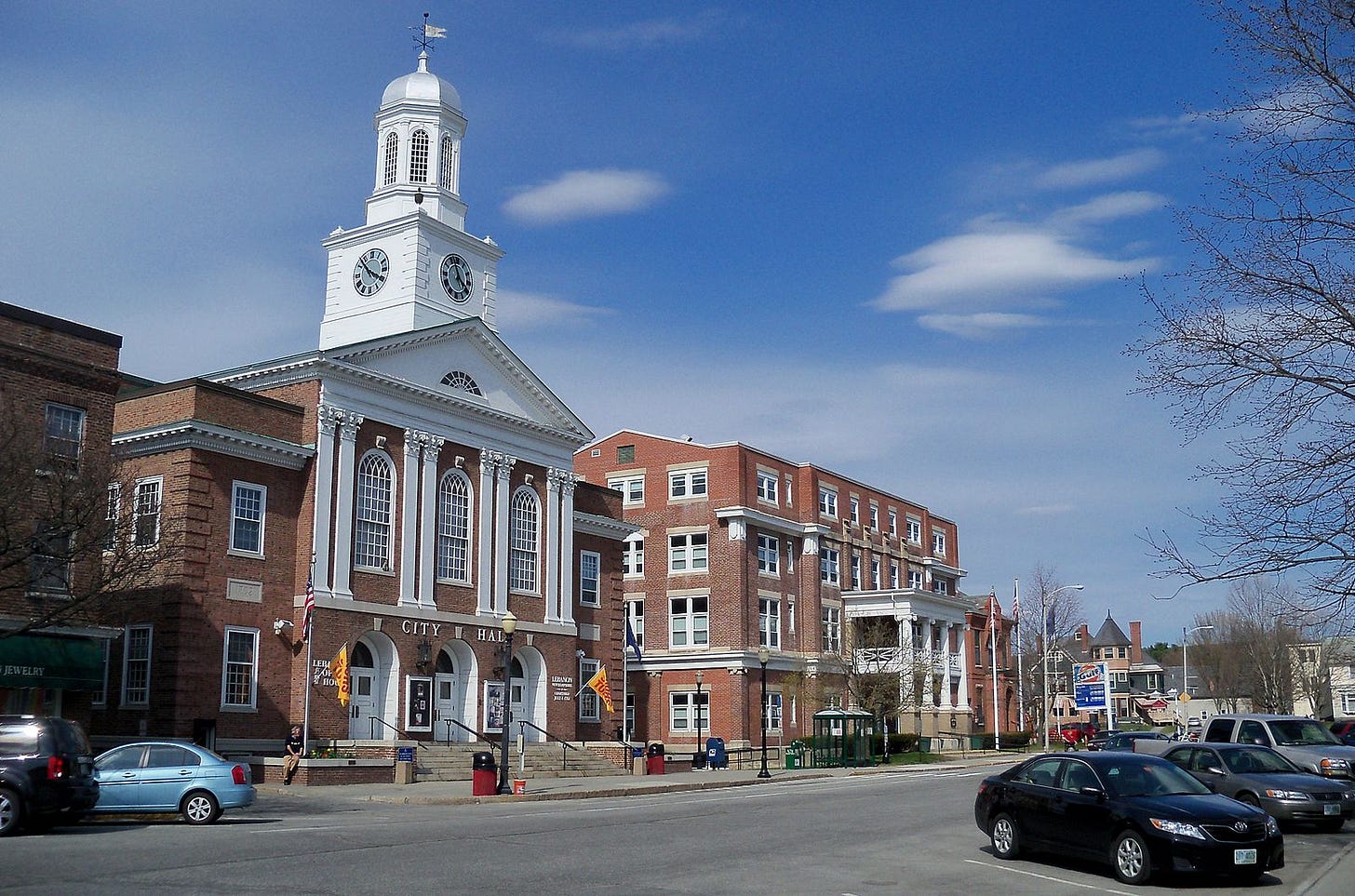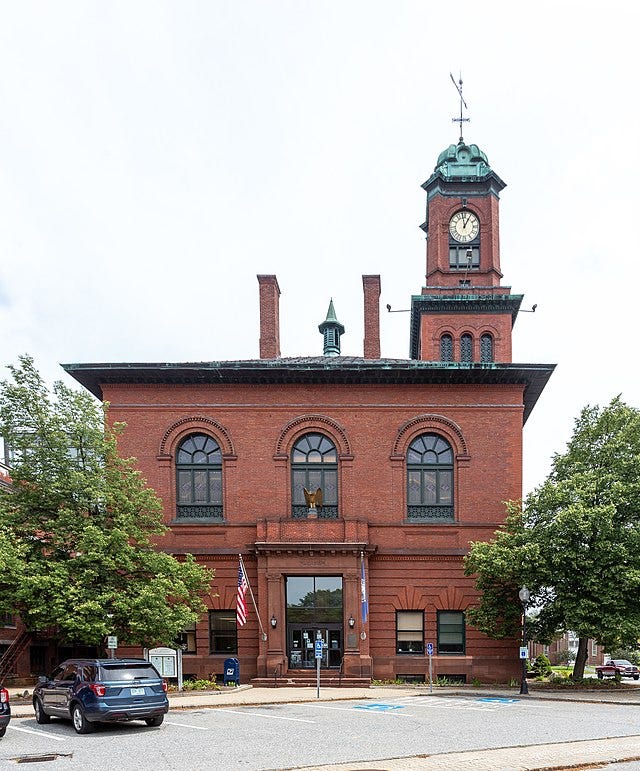Why is it called an “opera house?”
Why do they call it an “opera house?”
To be sure, I have seen productions by Opera North at Lebanon Opera House, but I’ve also seen Judy Collins (twice) and Paula Poundstone, as well as my granddaughters’ ballet performances, at this same venue. At the just-renovated Barre Opera House, Celtic musicians Coig will present a holiday concert in December. A tribute band and a comedic duo are slated to perform at Claremont Opera House. An eternally-youthful Tony Bennett danced across the stage at Boston Opera House a few years ago. Check out the websites of just about any opera house in the environs of the Twin States. There’s nary an opera in the line-up. And in the United States, it appears to have been ever thus.
When I first moved to the Upper Valley, I wondered about the plenitude of opera houses, thinking that perhaps small-town Yankees had, in times past, lived for opera, so much so that they built temples dedicated to the art. But no . . .
My research is not definitive, but was sparked by this recent quote from Jim Lowe in a review in the Times-Argus of the new Barn Opera in Brandon, Vermont. The Barn, says Lowe, is the first real opera house in the state because it was designed for actual opera performances:
“ Factoid: Opera houses like the Barre Opera House and Vergennes Opera House, etc. are not, in fact, designed for opera; rather, the term opera house refers to stage measurements, and a “theater” is bigger than an “opera house.” These designations once had to do with taxation. . .”
Lowe’s observation was repeated by other commentators, emphasizing not just stage dimensions but other structural features, like the presence of sunken orchestra pits.
There are a host of theories that the term “opera house” was used primarily to “class up the joint,” the “joint” being a multipurpose venue with all kinds of live entertainment and often, like LOH, in a building that also housed municipal administrative offices. In a discussion of the history of opera houses in Nebraska, the writer revealed that “ . . . frontier towns didn’t want to remain frontier towns. They wanted to be respectable and prosperous. That meant welcoming high culture—at least the wealthier citizens tended to think so.” Joe Clifford, Executive Director at Lebanon Opera House, added that small towns often competed to have railroad stops in their town. An “opera house” might have made a town seem larger, more important, a cultural center sufficiently worthy of a rail station.
All of which is ironic, according to Evans Haile, General Director, Opera North, because in Europe, opera was originally not class-conscious; it was an art form for the masses. Haile says that in the United States, opera came to be known as “high art,” as the upper classes and Gilded Age robber barons imported all things European as evidence of their sophistication and superiority. As Haile puts it: “To be accepted, you needed ‘culture’ . . . whether you liked it or not.”
“Theater,” by contrast, was considered low-class and even debauched. Actresses were thought of as a short step above prostitutes. Maybe better to build something that could serve the function of a theater (often with light—and even shady—musical and other entertainment) and call it an “opera house.” Even if the performances of actual opera were rare.
Haile sums it up. “As a result, in many cities, an Opera House was a more acceptable name for what we basically call Performing Arts Centers . . . So for a town to have an “Opry” house showed off the cultural aspirations of that community, just as a Performing Arts Center does today.”
As for Lebanon Opera House, Joe Clifford wants you to know that productions there are most definitely not limited to opera. I’m looking forward soon to a night on the town at LOH, listening to the decidedly American country sounds of singer-songwriter, 2021 MacDowell Medal awardee, and yes, Grande Ole Opry royalty, Rosanne Cash.
(Photo, top, through Wikimedia Commons by Jon Platek. Middle, through Wikimedia Commons by Kenneth C. Zirkel )
————————————
Welcome! You’re reading Artful, a blog about arts and culture in the Upper Valley, and I hope you’ll subscribe and then share this with your friends and on your social media.
And in case you are wondering . . . Susan B. Apel shuttered a lifelong career as a law professor to continue an interest (since kindergarten) in writing. Her freelance business, The Next Word, includes literary and feature writing; her work has appeared in a variety of lit mags and other publications including Art New England, The Woven Tale Press, The Arts Fuse, and Persimmon Tree. She connects with her neighbors through Artful, her blog about arts and culture in the Upper Valley. She’s in love with the written word.


